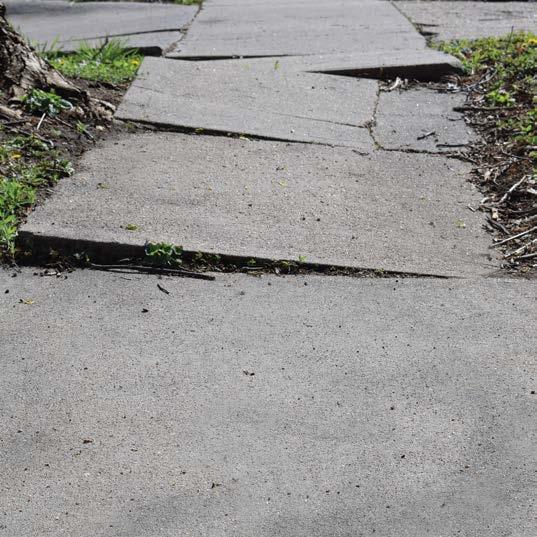
4 minute read
Doubting your doubts
By Steve Sugrim
Advertisement
It’s easy to blame technology for misinformation.
My wife and I were talking about how common it is these days to encounter someone who is unaware of a basic fact or believes something totally ridiculous or unfounded.
When British political consulting firm Cambridge Analytica was found to have misappropriated digital assets and used data in a number of unethical ways to break into computers and disrupt the US electoral process, it sparked a scandal of historic proportions. That sad story was also enlightening for many people.
The information technology guy within me marvelled at how easily they steered entire populations of people with strategic communications.
It reminded me of a technology partner that collected geo-specific data of where employees were in a building at all times. When I questioned him on the privacy of that data, he replied,
“It’s not the data we provide that is the problem — it’s what they do with the data.”
The way companies and people use data acquired with technology for their agendas and personal gain is a problem.
It’s not uncommon for some- one to complain about a picture on social media being digitally altered or ‘fake’. I follow a Facebook group that posts user photographs of tornadoes and storms.
You get comments on picture posts ranging from ‘observe the glorious power of God’ to ‘obviously faked — look at the pixels and lighting in the lower left.'
We have become remote judges, sitting in our chairs, staring at our screens and webcams. The cancel culture of doubt and questioning is a good thing — most of the time.
‘Doubting’ Thomas in the Gospel of John, chapter 20, walked into an upper room full of his colleagues, who exclaimed to Thomas, “We have seen the Lord!” But understand, they all had just witnessed Jesus crucified, and were hiding out in a room trying to figure out what to do next.
Thomas replied, “Except I shall see in his hands the print of the nails and put my finger into the print of the nails, and thrust my hand into his side, I will not believe.” (John 20:25)
I like Thomas. He didn’t believe their statement verbatim, and in fact, challenged them to prove it. But here is where it gets interesting.
A week later his disciples were in the house again, and Thomas was with them. Though the doors were locked, Jesus came and stood among them and said, “Peace be with you!” Then he said to Thomas, “Put your finger here; see my hands. Reach out your hand and put it into my side. Stop doubting and believe.” (John 20:27)
Suddenly Thomas realized his doubt was not founded.
But Jesus took it a step further with this statement to Thomas,
“Because you have seen me, you have believed; blessed are those who have not seen and yet have believed.” (John 20:29)
Where are you in that statement? Do you still believe? Or do you still need to physically see God to move forward in your faith?
As people who are immersed in technology and use it every day, we have to find that balance to discern what is true and not fall into the trap of doubt and dismissal of our faith. It is super easy to Google something, read someone’s blog, listen to a podcast, spin up another TED talk and dismiss something the Holy Spirit is trying to tell you.
Is there room in your life to allow God to continue to do the miraculous? Or are you a victim of your doubts?
You can doubt your doubts. It is not wrong to doubt. In fact, I encourage it.
But question yourself when you have a doubt. Why do I feel this way? What is driving this doubt? What do I need to pray about or read about in the Word to help me understand this doubt? Is it a legitimate concern or am I just hearing an alternate voice from something I’ve read, seen, or heard? How does doubt line up with God’s past work in my life or what He says in Scripture? Am I just leaning on someone else’s thoughts in the media? Can I test the ‘fruit’ of this doubt and see if it is good or not? Can I still move forward even
if I have doubts that this is the will of God? Am I leaving room for God to move in my life?
Strive to become a mature believer, sifting through your doubts and holding on to what is true, regardless of whether you can see or touch it. Go beyond Thomas. Why?
“So that we are no longer children [spiritually immature], tossed back and forth [like ships on a stormy sea] and carried about by every wind of [shifting] doctrine, by the cunning and trickery of [unscrupulous] men, by the deceitful scheming of people ready to do anything [for personal profit.]” — (Ephesians 4:14) .
Steve Sugrim serves as vice-president of innovation for Mission Aviation Fellowship. Prior to joining MAF, he was a senior multimedia designer at MEDA for more than a decade.




